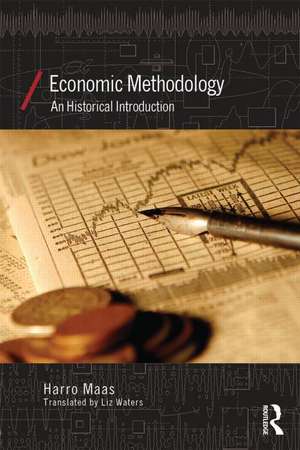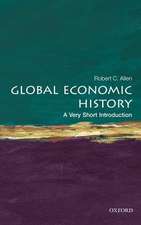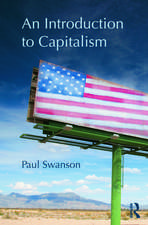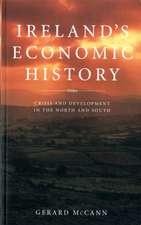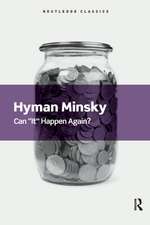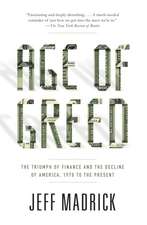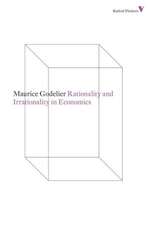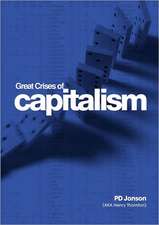Economic Methodology: A Historical Introduction
Autor Harro Maas Traducere de Liz Watersen Limba Engleză Paperback – 18 feb 2014
The story begins with John Stuart Mill's seminal essay from 1836 on the definition and method of political economy, which is then followed by an examination of how the actual practices of economists changed over time to such an extent that they not only altered their methods of enquiry, but also their self-perception as economists. Beginning as intellectuals and journalists operating to a large extent in the public sphere, they then transformed into experts who developed their tools of research increasingly behind the scenes. No longer did they try to influence policy agendas through public discourse; rather they targeted policymakers directly and with instruments that showed them as independent and objective policy advisors, the tools of the trade changing all the while.
In order to shed light on this evolution of economic methodology, this book takes carefully selected snapshots from the discipline’s history. It tracks the process of development through the nineteenth and twentieth centuries, analysing the growth of empirical and mathematical modelling. It also looks at the emergence of the experiment in economics, in addition to the similarities and differences between modelling and experimentation.
This book will be relevant reading for students and academics in the fields of economic methodology, history of economics, and history and philosophy of the social sciences.
| Toate formatele și edițiile | Preț | Express |
|---|---|---|
| Paperback (1) | 456.21 lei 6-8 săpt. | +134.15 lei 10-14 zile |
| Taylor & Francis – 18 feb 2014 | 456.21 lei 6-8 săpt. | +134.15 lei 10-14 zile |
| Hardback (1) | 875.13 lei 6-8 săpt. | |
| Taylor & Francis – 24 feb 2014 | 875.13 lei 6-8 săpt. |
Preț: 456.21 lei
Preț vechi: 536.72 lei
-15% Nou
Puncte Express: 684
Preț estimativ în valută:
87.29€ • 91.39$ • 72.23£
87.29€ • 91.39$ • 72.23£
Carte tipărită la comandă
Livrare economică 05-19 aprilie
Livrare express 04-08 martie pentru 144.14 lei
Preluare comenzi: 021 569.72.76
Specificații
ISBN-13: 9780415858991
ISBN-10: 0415858992
Pagini: 202
Ilustrații: 36 black & white illustrations, 3 black & white halftones, 33 black & white line drawings
Dimensiuni: 156 x 234 x 18 mm
Greutate: 0.32 kg
Ediția:1
Editura: Taylor & Francis
Colecția Routledge
Locul publicării:Oxford, United Kingdom
ISBN-10: 0415858992
Pagini: 202
Ilustrații: 36 black & white illustrations, 3 black & white halftones, 33 black & white line drawings
Dimensiuni: 156 x 234 x 18 mm
Greutate: 0.32 kg
Ediția:1
Editura: Taylor & Francis
Colecția Routledge
Locul publicării:Oxford, United Kingdom
Public țintă
PostgraduateCuprins
1. Introduction 2. Economics: Inductive or deductive science? 3. Economics and Statistics 4. Business-Cycle Research: The rise of modelling 5. John Maynard Keynes and Jan Tinbergen: The dramatist and the model-builder 6. Milton Friedman and the Cowles Commission for Econometric Research: Structural models and ‘as if’ methodology 7. Modelling Between Fact and Fiction: Thought experiments in economics 8. Experimentation in Economics 9. Simulation with Models 10. Economics as Science 11. Further Reading
Notă biografică
Harro Maas is Associate Professor in the School of Economics at Utrecht University, the Netherlands.
Recenzii
'There is no doubt that Harro Maas’s Economic Methodology: A Historical Introduction is a very important, innovative and scholarly written introduction to the methodology of economics. In putting the practices of economists at its heart it may – and should – attract a wide readership. Students of the history of economic thought and economic methodology will indeed find in this book much food for thought. I can only strongly recommend its reading.' - Journal of Economic Methodology
'What is good economics? Instead of offering armchair answers to this question, the book offers detailed descriptions of the practice of economics throughout the course of its rich history.' — Esther-Mirjam Sent, Radboud University Nijmegen, the Netherlands.
'Harro Maas provides a concise introduction to the sources of factual knowledge and approaches to theoretical knowledge of leading economists of the last two centuries. His book is not about what economists say they do, or what methodologists say they should do, but what they do. It makes for a great read.' — Richard Van Den Berg, Kingston University London, UK
'The book's historical approach reflects a wide knowledge and deep understanding of economics and contains much that will fascinate practising economists and their students. It is a remarkable book, written in a lively and engaging style, that everyone with any interest in economic methodology, as well as economists who think methodology has nothing to say to them, should read.' — Roger Backhouse, University of Birmingham, UK
'What is good economics? Instead of offering armchair answers to this question, the book offers detailed descriptions of the practice of economics throughout the course of its rich history.' — Esther-Mirjam Sent, Radboud University Nijmegen, the Netherlands.
'Harro Maas provides a concise introduction to the sources of factual knowledge and approaches to theoretical knowledge of leading economists of the last two centuries. His book is not about what economists say they do, or what methodologists say they should do, but what they do. It makes for a great read.' — Richard Van Den Berg, Kingston University London, UK
'The book's historical approach reflects a wide knowledge and deep understanding of economics and contains much that will fascinate practising economists and their students. It is a remarkable book, written in a lively and engaging style, that everyone with any interest in economic methodology, as well as economists who think methodology has nothing to say to them, should read.' — Roger Backhouse, University of Birmingham, UK
Descriere
Ever since the inception of economics over two hundred years ago, the tools at the discipline’s disposal have grown ever more sophisticated. This book provides n historical introduction to the methodology of economics through the eyes of political economists.
